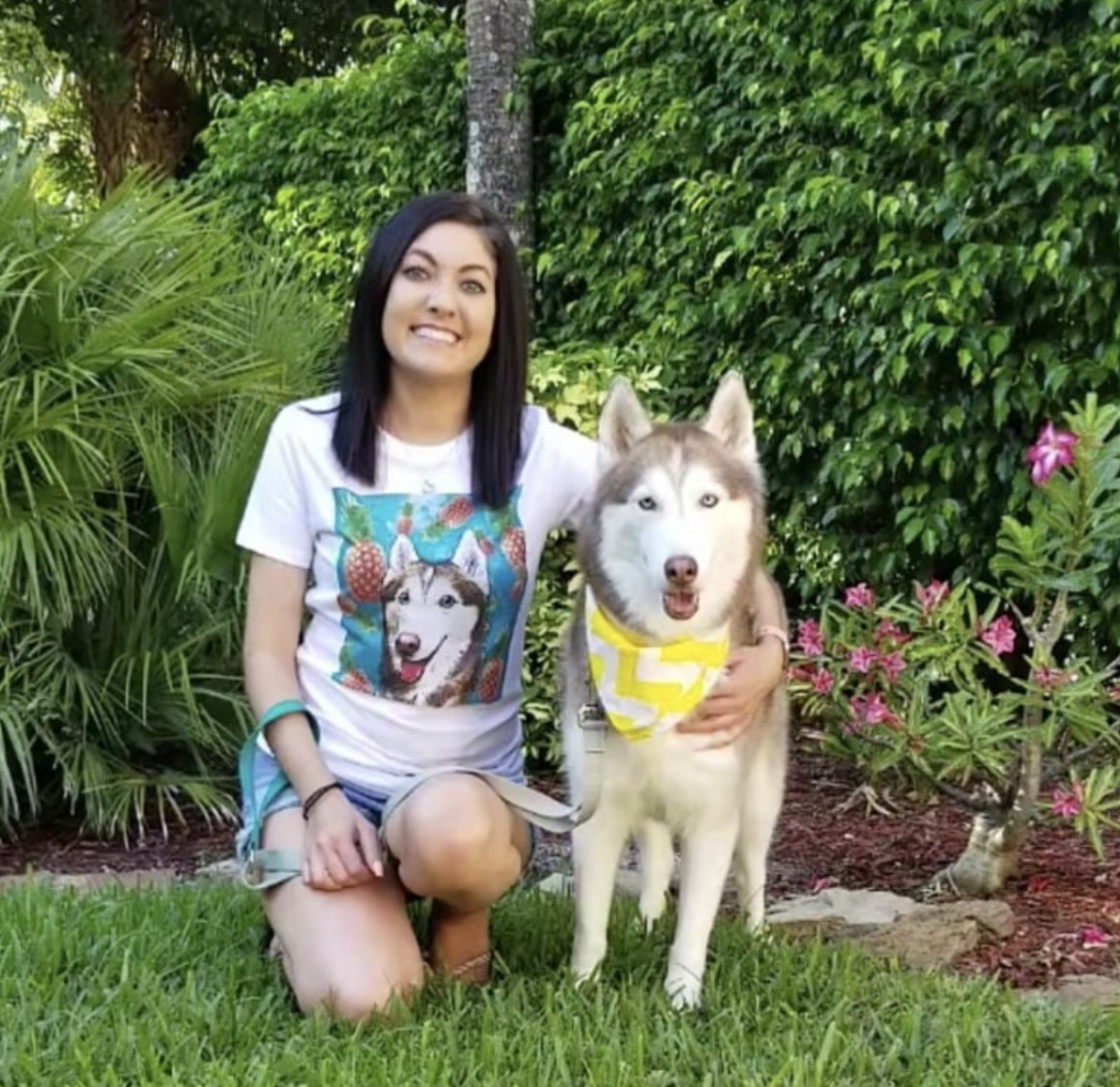April 29 is National Adopt A Shelter Pet Day! There are an overwhelming number of lovable and oh-so-squishable pets waiting for a new home (or at least a new toy in the meantime) at your local animal shelter. We know not everyone can adopt, but donating is another great way to help animals in need! Below are some of the best (and most needed) items to donate to your local animal shelter or rescue.
**NOTE** In general, donated items should be new/gently used, clean/washed, and unopened/sealed if they’re food goods. Every shelter and rescue is different, so it’s always best to call ahead (or visit their website) to ask if they have specific criteria for donating. Some shelters even have Amazon wishlists set up for specific supplies they’re in need of!
1. Durable Toys
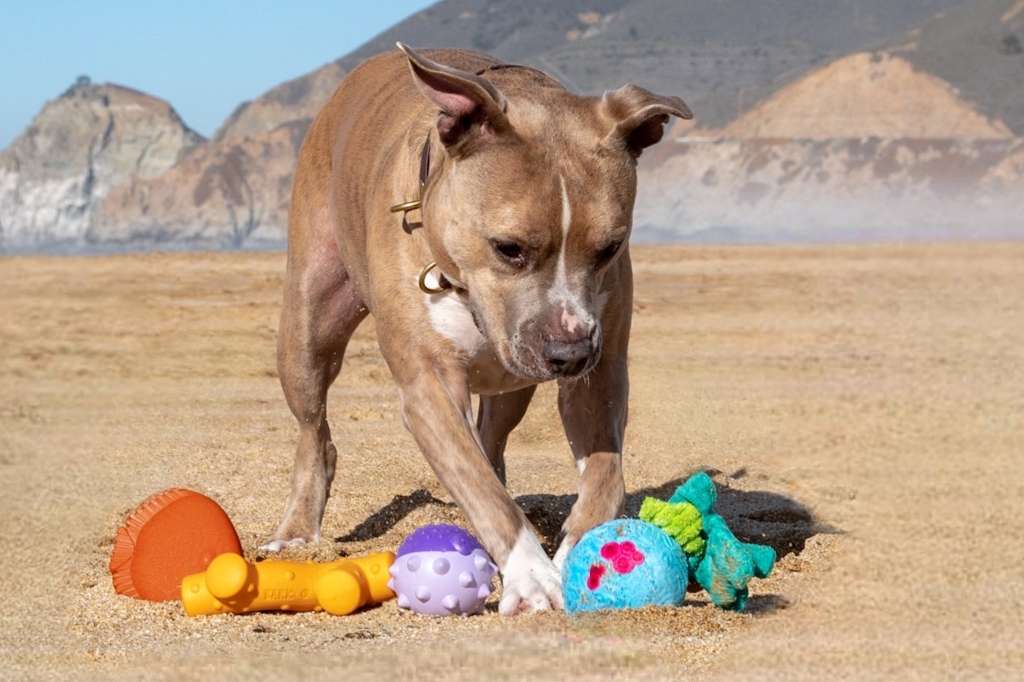

Each shelter and rescue is different, but some prefer donations of more durable chew toys that are dishwasher safe. Durable chew toys often last longer than their plush counterparts—which tend to undergo a fluffectomy in a flash. Durable toys are also more easily washed and sanitized, so dogs can spread the joy without spreading the germs. Some ideas for durable chew toys to donate include:
- Dishwasher-safe chew toys
- Rubber chew toys
- Nylon chew toys
- Tennis balls
- Frisbees
- Enrichment treat puzzles
- Puppy-safe chew toys (These toys are made with softer rubbers that are safer for delicate puppy teeth.)
**Avoid donating rawhides—they’re known to become choking hazards, and can cause intestinal blockages.
2. Treats
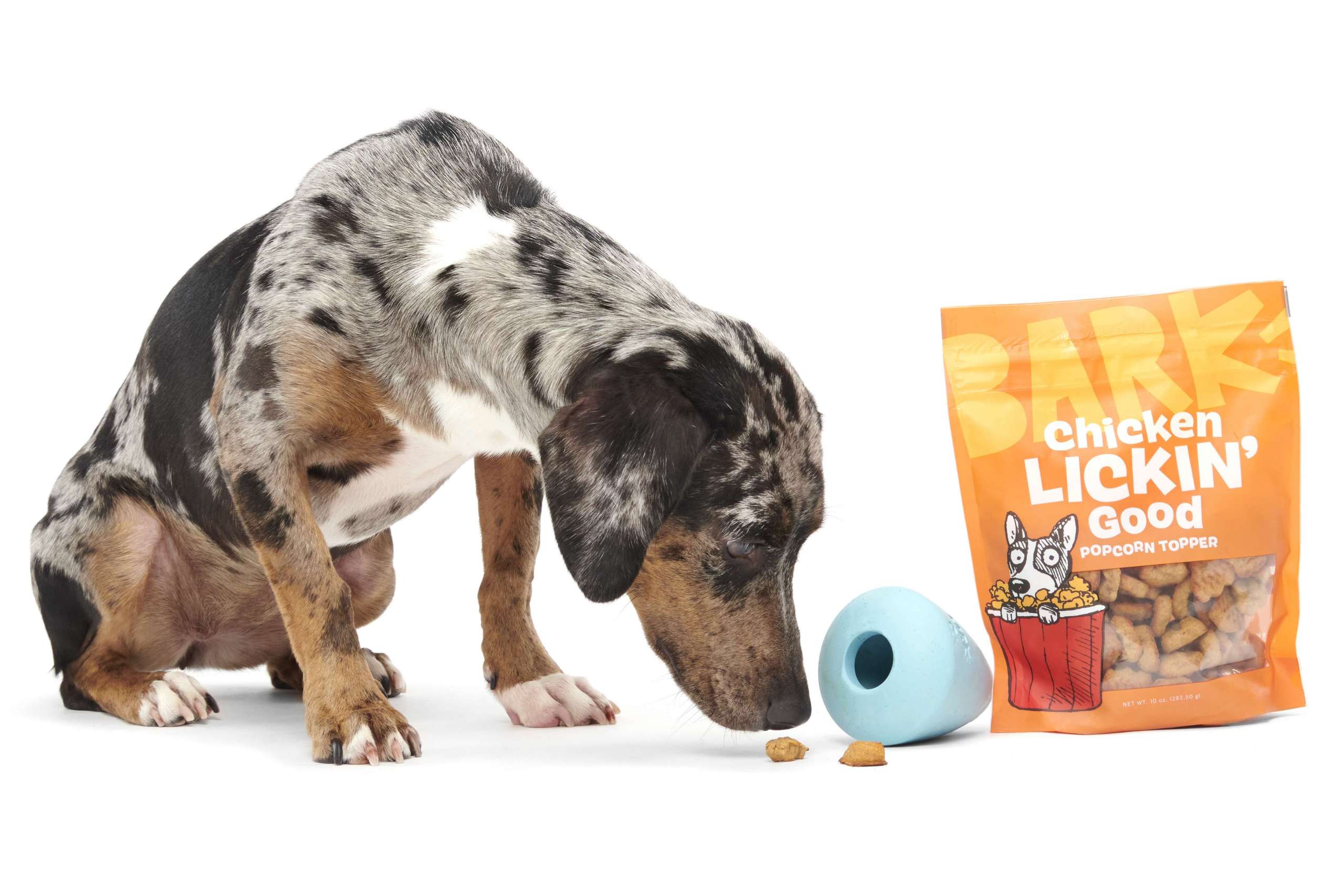

These good boys and girls deserve ALL the treats!! Shelters love having a variety of treats, but usually prefer new, unopened bags. This is a safety precaution to ensure the treats are not expired or spoiled, and haven’t been tampered with. Here are some treats these pups would love to get their paws on:
- Training treats
- Treats for dogs who may have allergies (single-ingredient treats, meat-free treats, fish treats for those allergic to poultry, grain-free treats)
- Soft & chewy treats
- Crunchy treats
- Jerky treats
- Dental chews
3. Soft Toys


It’s a good idea to always check with a shelter before donating soft toys—some shelters won’t accept them. As much as we know dogs love to rip these guys to shreds and thrash ’em about, plush toys can become a choking hazard without supervised play, and a germ-factory in such a hectic environment. If your local shelter accepts soft, plush toys, you may want to consider donating safer or longer-lasting options, like:
- 2-in-1 toys—double-layered soft toys with a second toy underneath the layer they just destroyed
- Soft toys with strong, durable stitching
- Stuffing-free and squeaker-free toys
- Or scoop up lots of inexpensive toys on sale to donate in bulk!
4. Cleaning Supplies
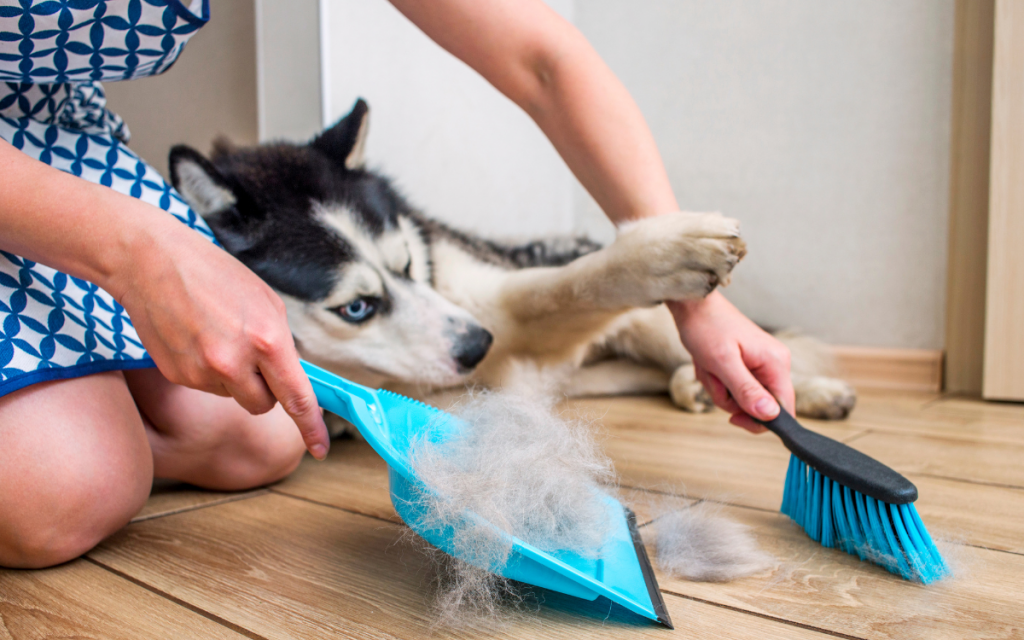

Shelters probably wish the skies would open up and just start raining cleaning supplies. There’s a never-ending amount of cleaning to be done, so cleaning supplies are usually at the top of their wishlist. If you’re donating any cleaning chemicals, you’ll want to check ahead of time if your local shelter accepts opened bottles, or if they need to be sealed. Some of the most-requested cleaning supplies include:
- All-purpose cleaning sprays
- Sanitizing sprays & wipes (Clorox, Lysol etc.)
- Hand sanitizer & soap
- Cleaning products for pet messes (Nature’s Miracle, Resolve Pet Spray, Arm & Hammer pet products, etc.)
- Laundry detergent
- Buckets
- Mops/Swiffers
- Brooms
- Rags
- Sponges/scrub brushes
- Paper towels
- Garbage bags
- Plastic Ziploc-style bags
- Cleaning gloves
5. Creamy Peanut Butter (Xylitol-Free)
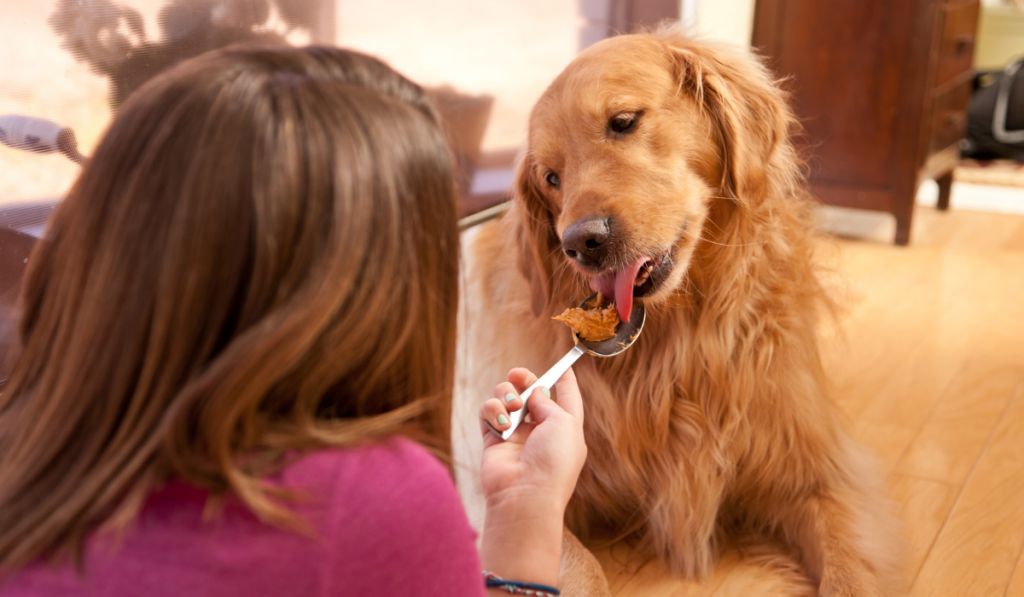

Peanut butter: the treat that keeps on giving. Peanut butter is not only a perfect high-value treat, but it’s also one of these easiest, cheapest ways to disguise medications. Just make sure that the peanut butter you’re donating is xylitol-free. Xylitol is an ingredient often used in human foods, but it’s highly toxic to dogs. It’s also commonly listed as birch sugar in the ingredient list. Creamy peanut better is best, because it’s easier to spread on toys and treats!
6. Towels & Blankets
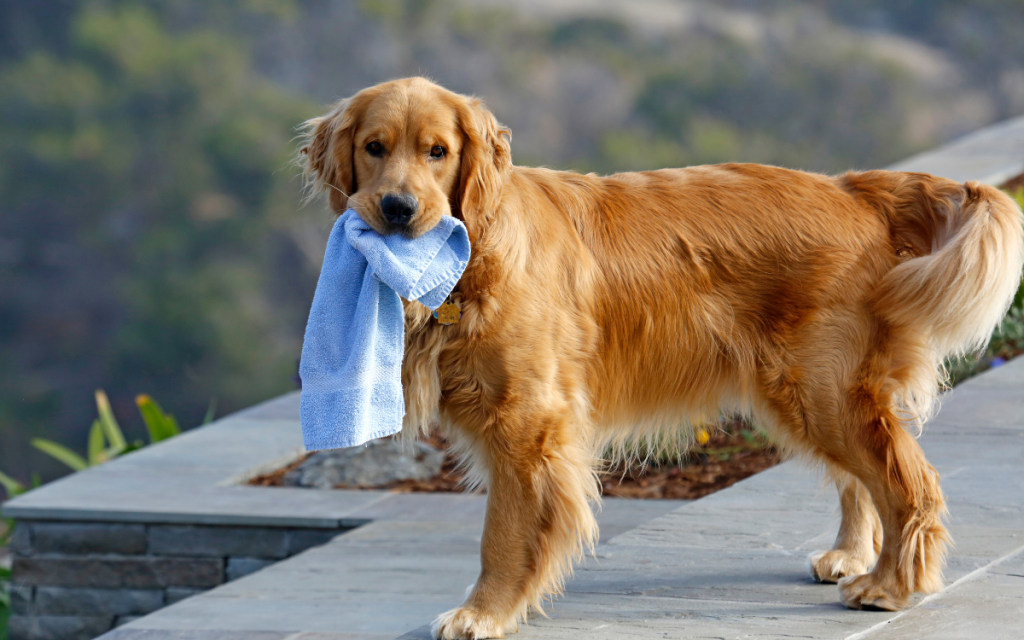

Towels and blankets serve a bunch of different purposes at shelters. Towels are perfect for cleaning, drying off dogs after a bath, puppy births from dogs who come into shelters pregnant, or just for making the floor a bit comfier to sleep on. Blankets simply make pups feel a little more at home. Shelters often need:
- Bath towels
- Washcloths
- Beach towels
- Hand towels
- Blankets
- Sheets
7. Grooming Supplies
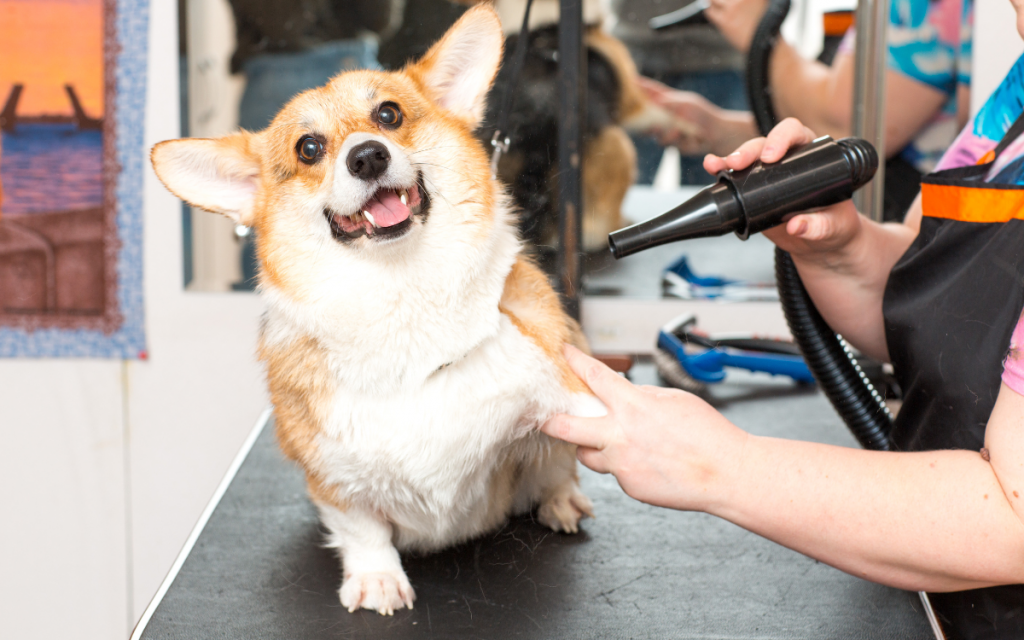

Think of all the conditions that dogs are dealing with as they come into a shelter. Many dogs are matted, dirty, infested with mange, covered in fleas, in need of a nail trim, and desperately need a lot of love and care with a bath and grooming. Dogs also often get a fluff-n-dry bath before going to their new forever home. That’s why shelters need a wide variety of grooming supplies, such as:
- Dog-friendly shampoo
- Dog-friendly conditioner
- Specialized dog shampoos (For fleas, mange, sensitive skin, etc.)
- Brushes
- Nail trimmers
- Electric razors for matted dogs
- Scissors
- Hair dryers
- Paw & nose balm
- Tear wipes
- Ear cleaning solution
8. Collars, Leashes, Harnesses, & Recovery Collars
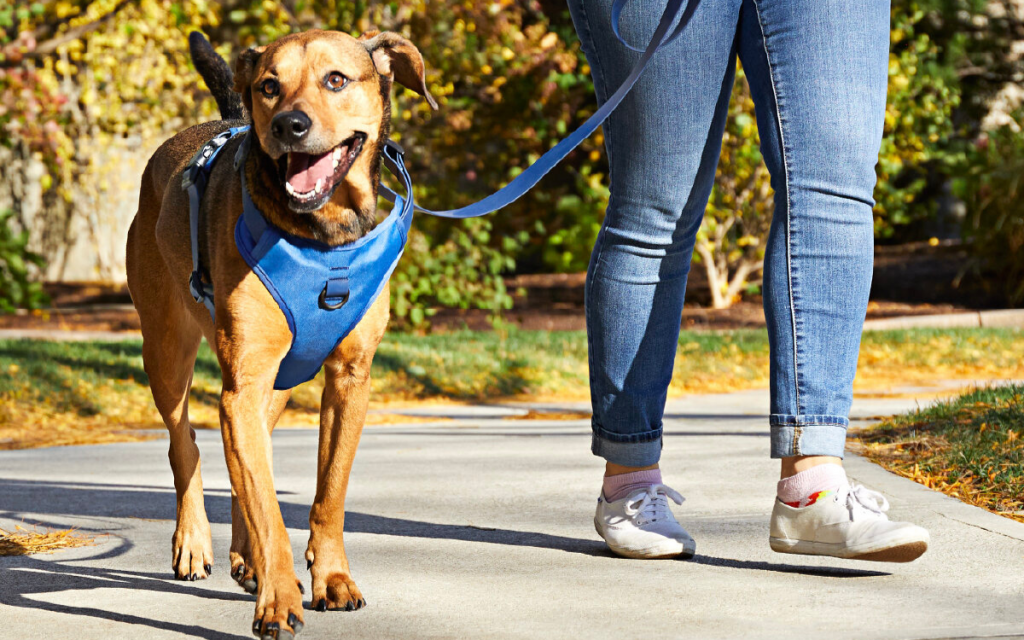

Even shelter dogs need accessories! There’s lots of walking and transporting to be done at animal shelters. Not only do all the dogs need collars and leashes to be walked daily, but shelters also need leashes to help catch and transport incoming dogs, to tether them during baths, or to transport them to adoption events. Recovery collars and donut collars are a must-have for injured dogs, and dogs who undergo spay/neuter procedures at the shelter. Shelters often need:
- Collars
- Leashes
- Slip leads
- Harnesses
- Recovery collars (a.k.a. the cone of shame, or e-collars)
- Martingale collars
- Head collars (i.e. Gentle Leaders)
9. Dog Food Supplies (Adult & Puppy)
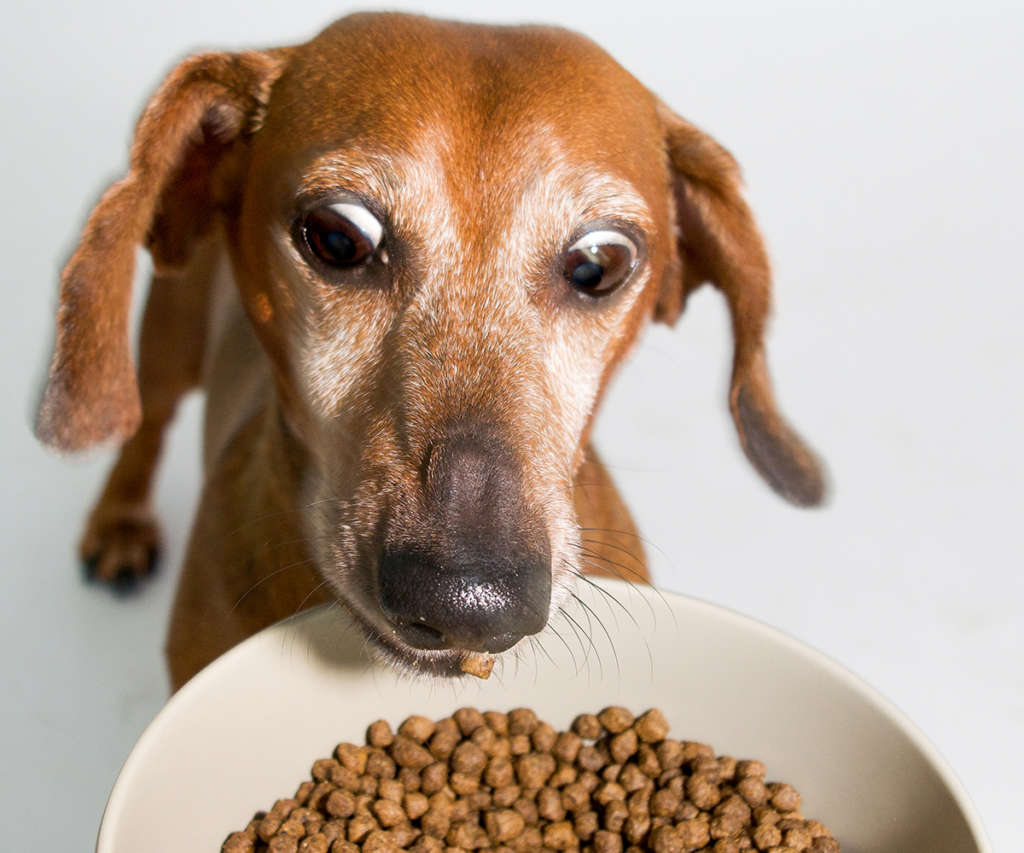

These pups gotta eat! Some shelters or rescues prefer to stick to certain diets so the dogs aren’t being fed different foods that upset their bellies. Other shelters will take all the food they can get! Depending on the shelter, food donations may be required to be sealed/unopened for safety reasons, so it’s a good idea to check with your local shelter before donating food. That being said, animal shelters often need:
- Dry adult dog food
- Dry puppy food
- Canned wet dog food
- Canned wet puppy food
- Specialized dry & soft food (limited-ingredient, grain-free, etc.)
- Food toppers for picky eaters
- Bags of plain rice
- Low-sodium chicken broth (no onions, no garlic)
10. Crates & Carriers
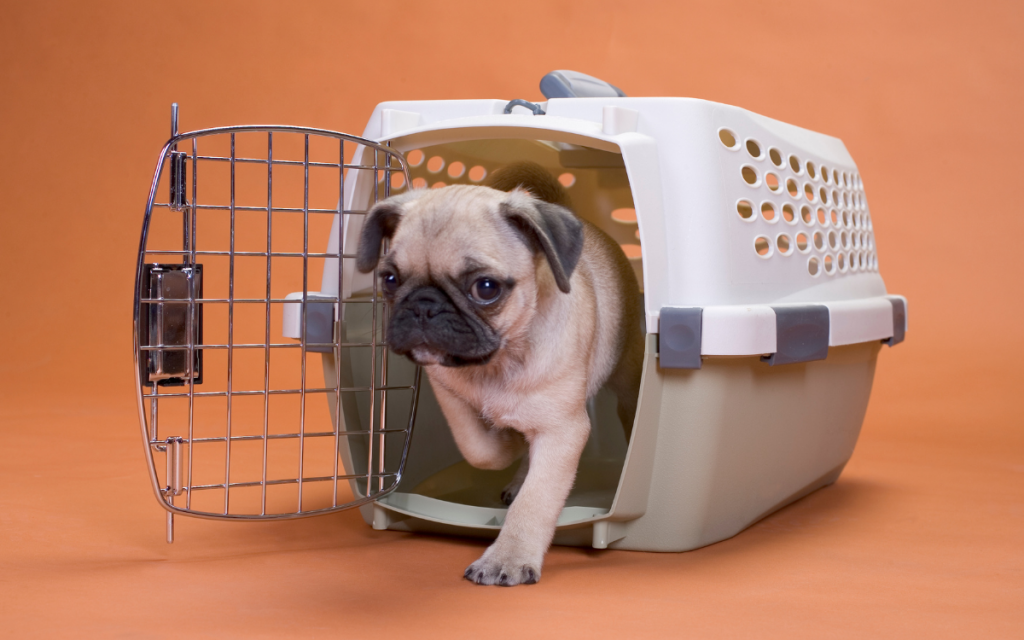

You may wonder why animal shelters need crates and carriers if the dogs are already in their own little room, but they’re actually necessary for lots of different reasons. Travel carriers are required for transporting incoming dogs, or for safely transporting pups to adoption events. They’re also useful to keep zoomies under control after surgeries.
Crates and playpens are also great for creating emergency space when shelters are over-crowded, or even for expectant dog moms. Check if you have any of these items lying around that you don’t need, and that are in good shape and rust-free:
- Crates
- Carriers
- Crash-tested travel carriers for transport
- Crash-tested car seatbelts
- Playpens
- Pet gates/baby gates
11. Dog Beds & Mats


After all these pups have been through, the last thing they deserve is to sleep on a cold, hard floor. Send all the dog beds! Squishy dog beds. Big dog beds. Elevated dog beds. Donut dog beds. All the beds! Check with your local shelters to see if they’re in need of:
- Elevated cots
- Washable dog beds
- Waterproof dog beds
- Mats
- Washable, large floor cushions
- Cooling mats
- Heating mats
12. Food & Water Bowls
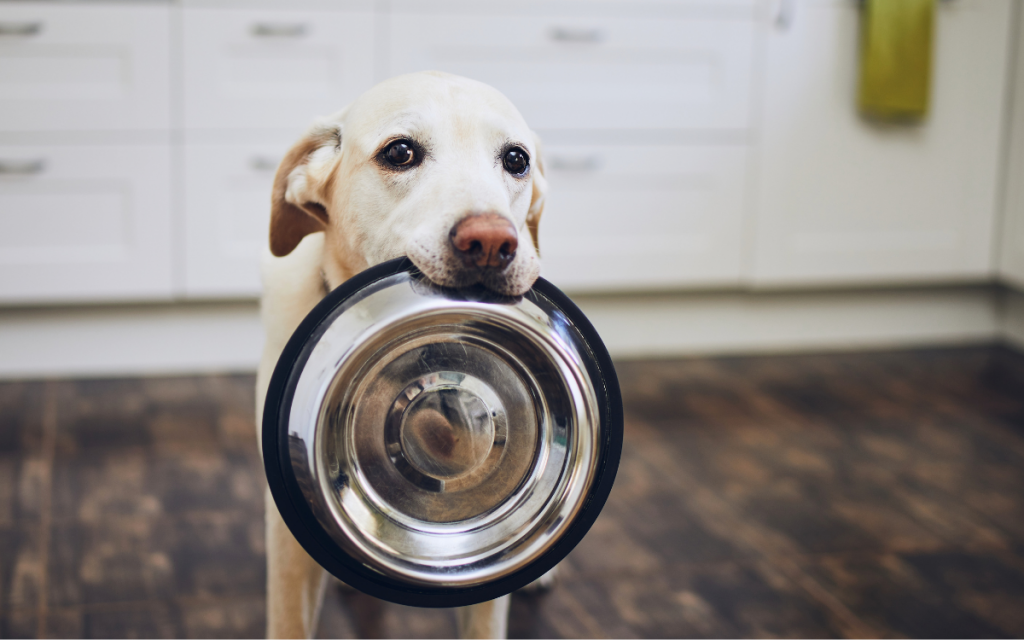

It’s always best to make sure you’re donating food and water bowls that can be cleaned and sanitized in a dishwasher. Shelters often prefer stainless steel dog bowls over plastic, ceramic, or other bowls that either tend to harvest bacteria or break more easily. If you have any of these items lying around that your dog no longer needs, your local shelter would be glad to snag them:
- Stainless steel, dishwasher-safe food & water bowls
- Insulated stainless steel dog bowls
- Slow-feeder bowls
- Crate bowls (food & water bowls that attach to crates & kennels to prevent spilling)
- Measuring cups
- Mixing bowls
13. Poop Bags & Pee Pads
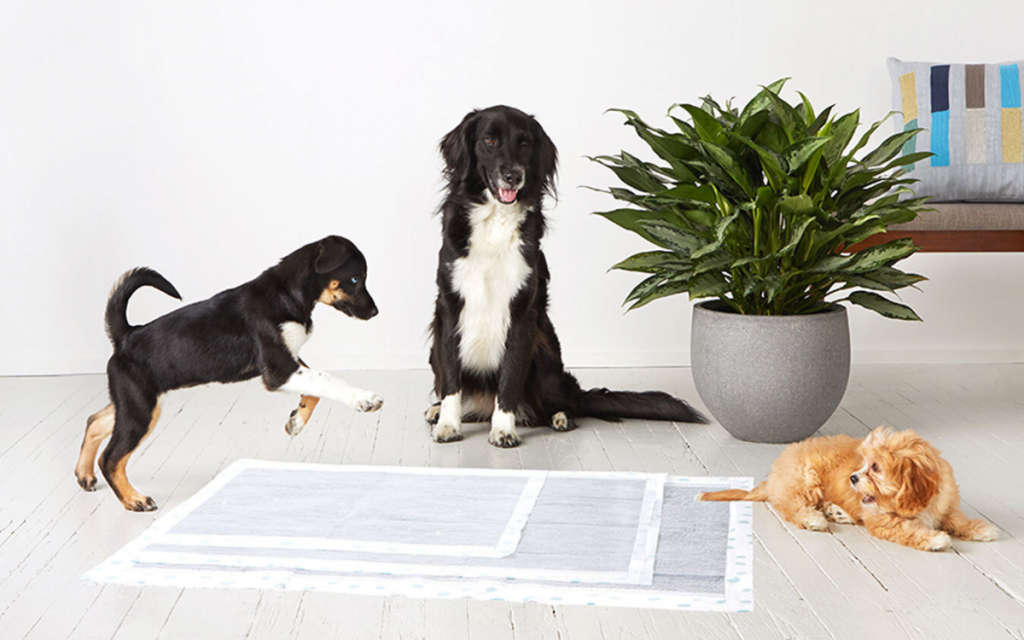

Not all shelter pups are potty-trained, so pee pads are a must-have, as are poop bags for indoor and outdoor messes. Donate any of these products:
- Poop bags
- Pooper scoopers
- Trash cans
- Pee pads
- Doggie diapers (for dogs in heat & older dogs)
- Old newspapers
14. Storage Containers, Organizers, & Tupperware
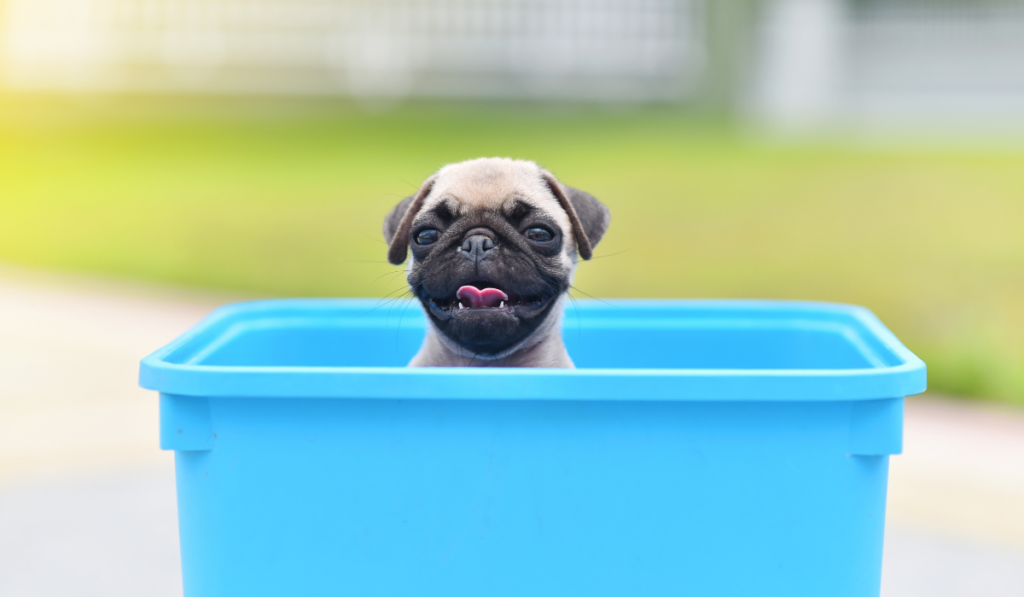

With so many supplies, animal shelters need plenty of storage and ways to organize. Check with your local shelter to see if they’re in need of:
- Food-grade storage containers
- Large bin storage containers
- Shelving
- Organizers for grooming supplies, food supplies, etc.
- Command hooks
- Cardboard boxes
15. Office & Miscellaneous Supplies


The staff need supplies, too! See if your local shelter needs human supplies, such as:
- Notepads
- Printer paper
- Sticky notes
- Clipboards
- Clear vinyl envelopes
- Pens
- Paper clips
- Toilet paper
- Zip ties
- Reusable shopping bags
- Coffee
16. Gift Cards
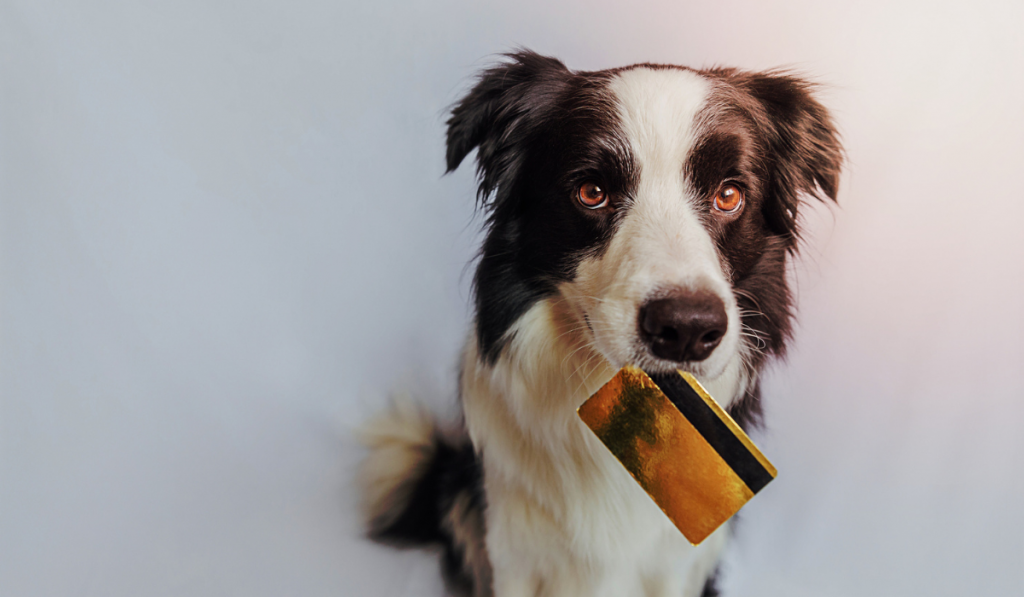

If you’re not sure what your local animal shelter needs, a gift card is always the perfect solution. The most useful gift cards include anyplace they can get the supplies they need, including:
- Pet stores
- Grocery stores
- Office supply stores
- Hardware stores
- Online stores like BARK, Chewy, or Amazon
16. Direct Donations


Money donations are always welcome—preferably entire dollar bills that haven’t been eaten, thanks! Check your local shelter’s website to see if they have a link to donate directly online!
17. Donate Your Time By Volunteering
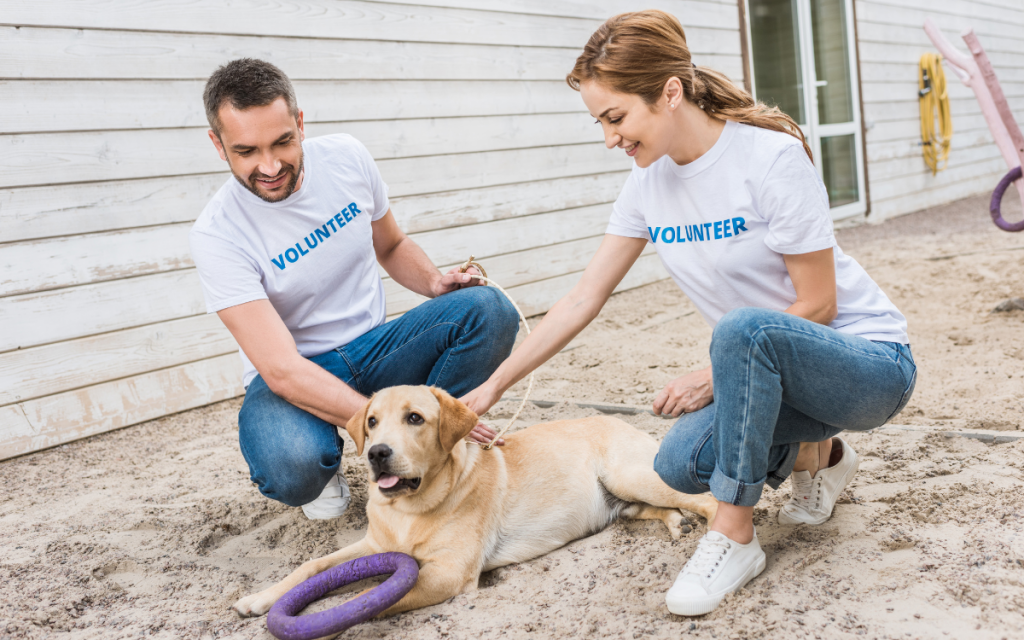

Animals shelters and rescues often have too many dogs and cats, and not enough humans to help out! Your local shelter may have a paid position if you’re looking for work, but they’re always in need of volunteers who just have a heart for helping animals. Shelters and rescues often need volunteers to help with:
- Dog walking
- Playing with dogs or cats
- Just sitting with the animals & giving cuddles
- Grooming & bathing
- Cleaning kennels
- Attending local adoption events
- Home checks (making sure a pet’s potential new home is safe & appropriate)

